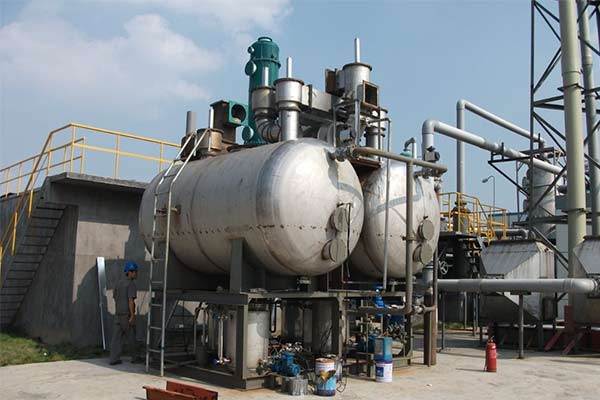
In the ever-evolving landscape of manufacturing, efficiency and sustainability have become paramount. One technology making a significant impact is the industrial solvent recovery system. These systems capture and recycle solvents used in various manufacturing processes, including ethanol. By grasping how solvent recovery systems work and their benefits, manufacturers in Singapore can make informed decisions that enhance operational efficiency and environmental stewardship.
What Are Solvent Recovery Systems?
Solvent recovery systems are technologies developed to reclaim and recycle solvents that would be discarded. Solvents are chemicals for dissolving or diluting other substances commonly used in many manufacturing processes. These systems capture the solvent from waste streams, purify it, and return it to the production line, reducing the need for new solvents and minimising waste.
How Do Industrial Solvent Recovery Systems Work?
Industrial solvent recovery systems operate through steps designed to reclaim and purify solvents. The process typically involves several key components:
Collection:
Waste solvents are from various stages of the manufacturing process. This could come from solvent-based cleaning, production residues, or other sources.
Separation:
The collected solvent is then separated from contaminants and impurities. This is usually achieved through distillation or filtration processes. Distillation heats the solvent to its boiling point, allowing it to evaporate and condense into a liquid, leaving impurities behind.
Purification:
Once separated, the solvent undergoes purification to remove any remaining contaminants. This ensures that the recovered solvent meets the necessary quality standards for reuse.
Storage and Reuse: After purification, the solvent is stored and can be reused in the manufacturing process. This reduces the need for fresh solvents, lowering operational costs and environmental impact.

Benefits of Solvent Recovery Systems
The adoption of solvent recovery systems offers numerous benefits to manufacturers:
Cost Savings:
By recycling solvents, manufacturers cut their reliance on new solvent purchases. This not only reduces raw material costs but also decreases disposal fees associated with waste solvents.
Environmental Impact:
Industrial solvent recovery systems help minimise the impact of manufacturing operations. By reclaiming and reusing solvents, these systems lower the volume of hazardous waste that needs disposal, contributing to a cleaner environment.
Regulatory Compliance:
Many industries face stringent regulations regarding solvent use and waste disposal. Solvent recovery systems help manufacturers adhere to these regulations by reducing emissions and waste, avoiding potential fines and penalties.
Enhanced Efficiency:
Recovering and reusing solvents can boost manufacturing efficiency. With a steady supply of purified solvent, processes can be more stable and predictable, leading to higher-quality products and fewer disruption
Ethanol Solvent Recovery
Ethanol is a widely used solvent in various industrial applications, from pharmaceuticals to coatings. Ethanol solvent recovery systems are specialised units designed to reclaim and purify ethanol from waste streams. These systems function similarly to general solvent recovery systems but are tailored to the specific properties of ethanol.
Ethanol solvent recovery is valuable in industries where ethanol is extensively used. By recovering and reusing ethanol, manufacturers can lower operational costs, reduce environmental impact, and ensure a more sustainable operation.
Implementing Solvent Recovery Systems
For manufacturers considering the adoption of solvent recovery systems, several factors should be evaluated:
System Size and Capacity:
Choose a system that matches the scale of your operations. Systems vary in size and capacity, so selecting one that suits your needs is crucial.
Cost vs. Benefit:
Assess the initial investment against the long-term savings and environmental benefits. While there may be upfront costs, the savings in solvent purchases and waste disposal can offer a substantial return on investment.
Maintenance and Support:
Ensure your choice comes with reliable support and maintenance services. Regular upkeep is essential for optimal performance and longevity of the system.
Regulatory Requirements:
Consider any specific regulations or industry standards. Ensuring compliance will help avoid potential issues and ensure smooth operation.
Conclusion
Industrial solvent recovery systems are vital in modern manufacturing, helping to enhance efficiency, reduce costs, and support environmental sustainability. By investing in these systems, manufacturers can reclaim valuable solvents, reduce waste, and contribute to a greener industry.
Improve your manufacturing processes and embrace sustainability, consider integrating solvent recovery systems into your operations. For more information on selecting and implementing the right system for your needs, contact industry experts today.




